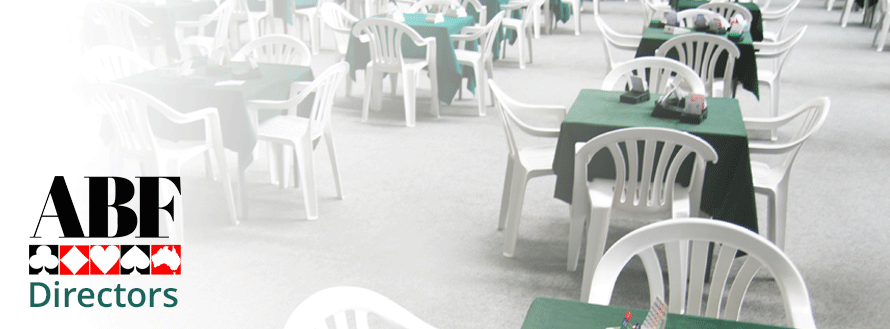DIRECTOR DEVELOPMENT
The profile of a “good” Director
A “good” Director has excellent people skills and is well liked and respected by all players. They are friendly, calm, helpful, easy to talk to, and often have a good sense of humour. They welcome all players, paying particular attention to visitors and new players, and are concerned with providing an enjoyable experience for all players.
When called to the bridge table they attend promptly and listen carefully to all sides before making a ruling. Their decisions are always fair and consistent and are delivered in a clear, confident and understandable manner. They deal gently and sympathetically with beginners and encourage players to improve.
The “good” director has an excellent up to date understanding of the rules, bidding systems, player and board movements, has good technology skills, and deals quickly and decisively with any issues that may arise. The “good” Director is well prepared for the bridge session, is always in control of the event, and actively monitors the activities in the bridge room.
Good directors have excellent communication skills and tend to speak quietly when called to a table so as not to disturb other players. They are able to defuse tensions at the table in the event of a dispute, are cool under pressure and can take control of difficult situations or players. They deal well with slow play and can control the noise level in the bridge room.
Good Directors are unbiased, treat all players equally, have no favourites, and always behave in a highly professional manner.
The profile of a “bad” director
A “poor” director behaves aggressively and unsympathetically toward players, fails to take action (such as dealing with slow play) when required during the running of a bridge event, and has poor knowledge of the rules of bridge or of the running of an event.
A “poor” Director does not interact at all well with players, and lacks empathy or even interest in what is occurring during the bridge event. They often go “missing in action” when called and are preoccupied with their own image and importance.
When called to a table and asked to make a ruling or resolve a dispute, the “poor” Director is either highly authoritarian, rude, arrogant, impatient and dismissive, or indecisive or difficult to understand. They fail to listen to the views of all players involved and make decisions which are often inconsistent and unfair.
The “poor” Director may also have their favourite players, who they invariably side with in disputes. The “poor” Director is easily stressed and may react emotionally to players’ questions by raising their voice or making inappropriate, hurtful remarks about such matters as a player’s competence.
Contact
National Director Development Officer
email: nddo@abf.com.au

